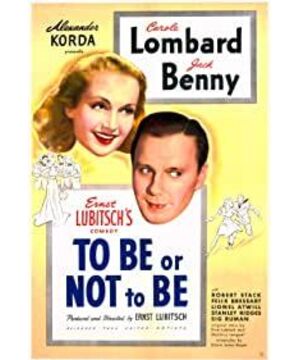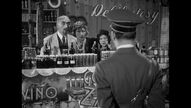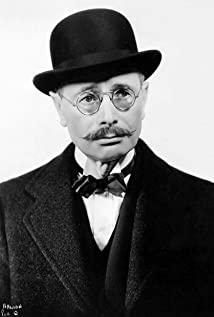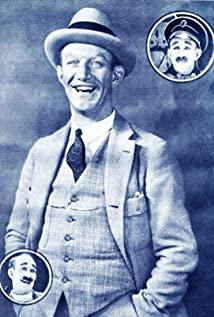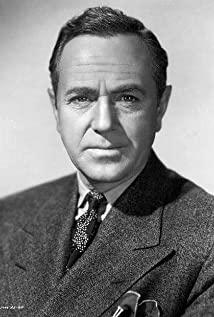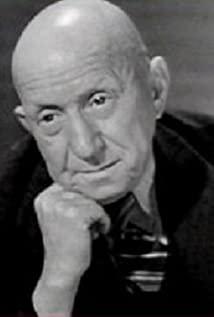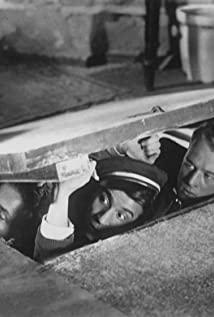"Mysterious and Mysterious Film Festival" at Macau Love Cinema
April 6, 2019 "You Run and I Run" *****
April 7, 2019 Bicycle Thief *****
"You Run Me Also Run" and "The Bicycle Thief" were both films made in the 1940s, one released during World War II (1942) and the other after World War II (1948). Both films criticize the war, but the writing style and viewing experience are very different.
"You Run, I Run" tells the story of how a group of stage actors disguised themselves, killed a spy, and escaped successfully in a play-in-play way. The funny and bizarre plot alludes to the absurdity of reality. Murder is like a child's play, but cronies are spies. During the war, Nazi officers did not forget to molest women. Whether it was an enemy or a friend, they could get away by putting on a uniform and giving Nazi gestures. The film looks like a farce on the surface, but the core is a satire of reality through black humor. One second before, Professor Siletsky was a revolutionary who was ready to risk his life to inform the Polish soldiers. The next second, he became an informant of the German Nazis and did not hesitate to betray his friends to leak information. When he saw the female star Maria Tura, she even coerced and tempted her. , The image of the decent intellectual underground party disintegrated in the huge contrast between the two scenes before and after, and reconstructed into the image of a traitor who is greedy for profit. Even more ironically, in order to obtain sadistic pleasure, the Polish Nazi officer put the body of Professor Siletsky directly into the office to frighten Joseph Tura, who was pretending to be a professor. Such a morbid psychology is presented in a humorous way in the dramatic plot structure of the film, which shows that the director Lubitsch is well aware of the horror of war, which is the catalyst for the ugly and dark side of human nature. The film's script and lines are exquisite and full of wisdom. The three-act drama structure of the classic Hollywood narrative, the emotional line (the triangular relationship between Joseph Tura, Maria Tura and the pilot Stanislav Sobinski) and the career line (the troupe and the Nazi wits) develop in parallel, with strong dramatic conflicts, which can be described as twists and turns. The film borrows Hamlet's classic monologue of "to be or not to be" to build suspense and characterize it, and even better is the iconic dramatic moment when the male protagonist realizes his emotional crisis (the "The Lubitsch Touch" moment). In the 1940s, American film creation was still limited by the censorship mechanism (The Hays Code). Lubitsch skillfully mixed sex and gender issues into the plot through ambiguous dialogues, and the audience naturally laughed out loud.
Unlike German-Jewish director Lubitsch, Italian director Desica chose to tell the story of a loser in a dedramatization manner. "Bicycle Thief" represents the aesthetic style of Italian neorealist films - live-action shooting (most scenes), non-professional actors (mostly), documentary-style photography, focusing on the working class and other underclass people, focusing on individuals Circumstances and emotions, narratives rely on coincidence and chance, no causal connection between before and after events, open endings. The film shows the devastated post-war Rome, with a large number of people unemployed, frequent theft, and desperate people pinning their hopes on God or psychic mediums. After losing the bicycle, my father went to the Public Security Bureau to report the case, but got a perfunctory reply from the police, "It's just a bicycle, we don't have time to find it for you." Compare the joy of my father getting a job posting posters, and my mother selling bed sheets to redeem the bicycle. The latter two contemplate the vision of a better future, and the film's criticism of war and the government is evident. Relying on serendipitous events is the contribution of Italian neorealist cinema. The father asked a friend to help him find a car, but to no avail; he took his son to other markets to look for a car, but unexpectedly found that the car thief was familiar with an old man. The father and son followed the old man into the church, and found that he was even more embarrassed than himself and required church meals. Giving alms; my father was desperate, and the psychic medium, which he regarded as superstitious before, became the last straw. Unexpectedly, he came across a car thief. After following him home, he found that he was also a poor man, and his family was poor and sick. Bicycles have become a symbol. Whether it is a car thief or a person who has lost it, they all rely on bicycles to improve their lives, get rid of hardships and regain hope. The same hope acts on the bottom-level individuals who are also deeply mired in the quagmire (poverty), and the car-hunting behavior escapes into a tragic death.
The two films have very different styles, but both reflect the director's humanistic care. In "The Bicycle Stealer", after the father and son quarreled because of the old man, they took their son to an expensive restaurant for dinner. This is also the happiest moment in the whole film; at the end, after the father was caught stealing the car, The owner of the car saw his son begging with tears on his face, and he felt pity and let his father go. "You Escape Me Also" refers to the classic monologue from "The Merchant of Venice" through Greenberg, accusing the encroachment of war on human nature, and trying to awaken the conscience of human nature in the way of moths to flames - What does he want from us? What does he want from Poland? Why possess us? Why? Why? Aren't we human? Have we not eyes? Have we not hands? Organs? Senses? Dimensions? Affections? Passions? Feed with the same food? Hurt with the same weapons? Subject to the same diseases? Healed by the same means? Cooled and warmed by the same winter and summer? If you prick us, do we not bleed? If you tickle us, do we not laugh? If you poison us, do we not die? If you wrong us, shall we not revenge?
(Original reprinted from https://www.facebook.com/CinemathequeFilmCritics )
View more about To Be or Not to Be reviews


